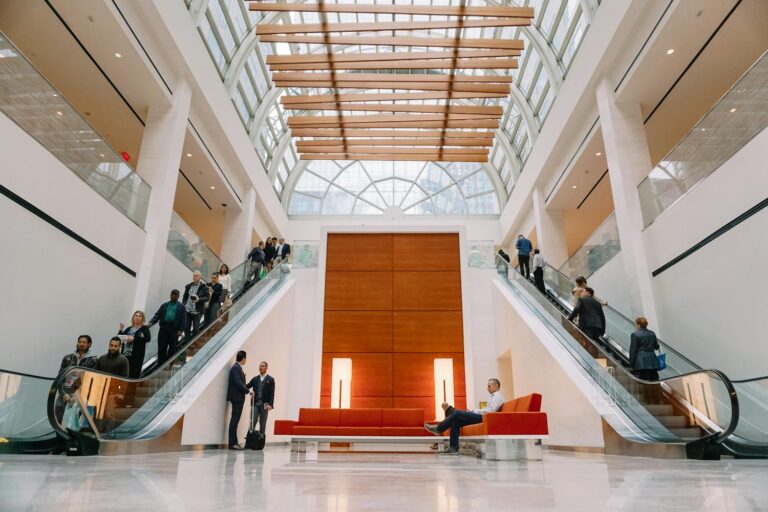If you are planning to move to the United Kingdom to work, choosing the right visa is one of the most important early decisions. Two of the most popular routes for skilled professionals are the Global Talent Visa and the Skilled Worker Visa.
While both offer a path to employment and potentially settlement, they are very different in purpose, eligibility and flexibility. In this article, we explore the main differences to help you understand which route may be most suitable for your situation.
What is the Global Talent Visa?
The Global Talent Visa is designed to attract exceptional individuals to the United Kingdom who are either leaders or emerging leaders in their field. It covers four main sectors:
- Academia and research
- Arts and culture
- Digital technology
- And more recently, engineering and architecture.
Unlike traditional work visas, it does not require an offer of employment. Instead, applicants must be endorsed by an approved UK body that assesses their achievements and potential. These bodies include Tech Nation, the Royal Society and Arts Council England, depending on the area of expertise.
Once endorsed, you can apply for the visa itself, which gives you the freedom to live and work in the United Kingdom without being tied to one employer. You can also apply for indefinite leave to remain after three years if you were endorsed as a recognised leader, or after five years if endorsed as an emerging talent.
What is the Skilled Worker Visa?
The Skilled Worker Visa is the main route for non-British citizens to come and work in the United Kingdom in a wide range of jobs. These roles must appear on the government’s list of eligible occupations and be offered by a licensed sponsor employer.
The key requirement is a job offer that meets the minimum salary and skill thresholds. Typically, the role must pay at least twenty six thousand pounds per year or ten pounds seventy five per hour, although this may vary for specific sectors such as healthcare and teaching.
Once granted, the Skilled Worker Visa allows you to stay for up to five years, with the possibility of extending or applying for permanent residency. However, your right to remain in the United Kingdom is directly tied to your employment with the sponsoring organisation.
Key differences in flexibility
One of the biggest distinctions between the two visas lies in the level of flexibility they provide. The Global Talent Visa gives you freedom to work for any employer, be self-employed or even start your own business. There is no requirement to report changes in employment and you are not bound to a specific job or sector once you are in the United Kingdom.
In contrast, the Skilled Worker Visa is tied to a specific sponsor. If you lose your job or wish to change employers, you must apply to update your visa. This restriction makes it less attractive to those seeking greater career flexibility or the ability to pursue multiple opportunities at once.
Related: Can a Skilled Worker Open a Company in the UK?
Visa process and costs
Both visa routes have different application procedures and costs. The Global Talent Visa involves a two-stage process. First applying for endorsement, then for the visa itself. The endorsement stage is not guaranteed and applicants need strong evidence of achievements and recognition in their field. This may make the process more daunting for some, but it also results in a more exclusive visa route.
The Skilled Worker Visa is more straightforward in some respects. You apply with your job offer and certificate of sponsorship, meeting the salary and language requirements. The costs, however, can add up, with visa fees, health surcharge and potential sponsor licence fees for employers.
Settlement and family options
Both visas provide a path to settlement in the United Kingdom, but the timeline can vary. Global Talent Visa holders endorsed as exceptional talent can apply for indefinite leave to remain after just three years. Skilled Worker Visa holders must usually wait five years, though this period may vary if they switch to another visa category.
Both visa types allow dependants – such as partners and children – to accompany or join the applicant in the United Kingdom. These dependants can usually work or study without restriction, making both routes family friendly.
Which one should you choose?
Choosing between the two depends on your career goals, credentials and current situation. If you are highly accomplished in your field and want the freedom to work without being tied to an employer, the Global Talent Visa offers prestige and flexibility. If you already have a job offer from a UK company and want a direct route into employment, the Skilled Worker Visa may be the more practical option.
Speak to our immigration solicitors today
Whether you’re weighing up visa options or need support with an application, our team at Osbourne Pinner can help. We offer expert legal advice tailored to your circumstances and can guide you through each step of the process.
We offer a free 30 minute consultation to discuss your needs in Harrow, Canary Wharf, Piccadilly Circus or Manchester. Contact us today via the form below, call 0203 983 5080 or email [email protected] to speak with one of our immigration solicitors.




